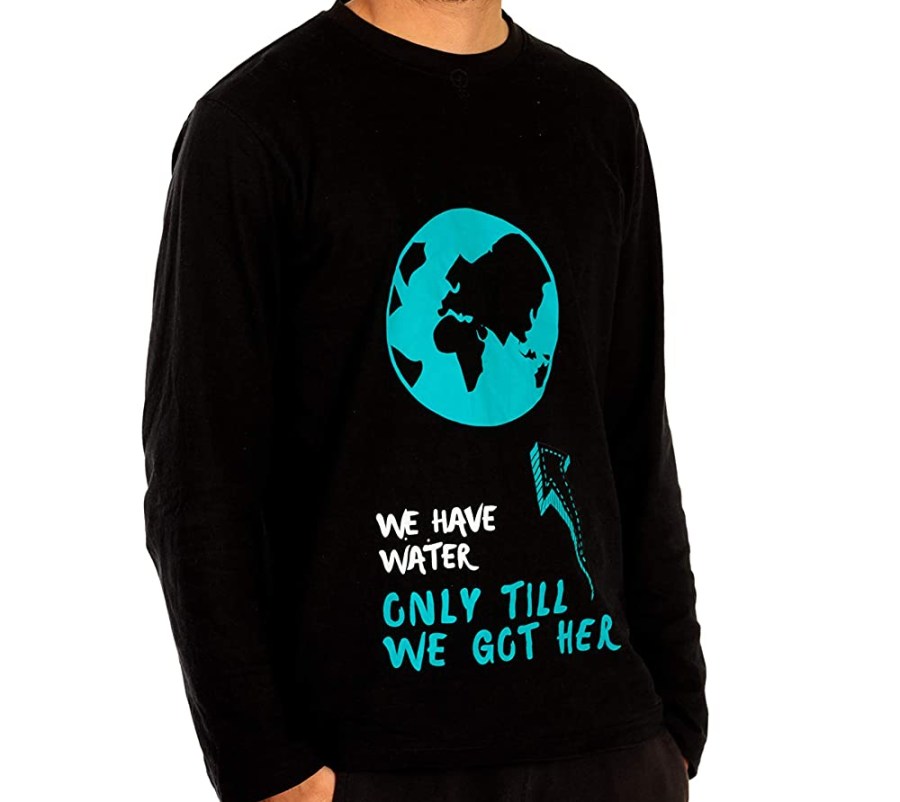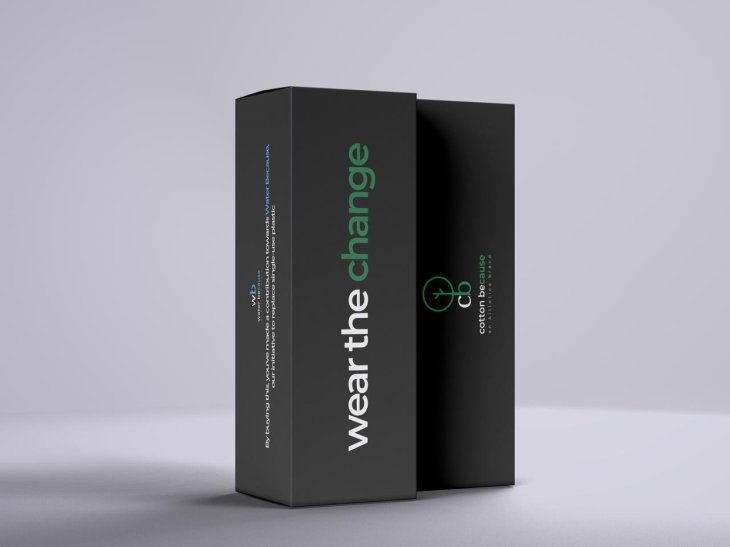The wastewater from a Reverse Osmosis (RO) water purifier always bothered me.
It was just wrong; we are constantly talking about a water crisis and still we let goodness knows how many liters of water flow down the drain every day!
One fine day, I decided that enough was enough. Why don’t we collect this water and use it to wash utensils? But when I was about to start this conversation with my family, I felt hesitant. Questions like, “Will they think this is silly?” or “Will they agree to make the extra effort?” or “Will they be dismissive?” butted into my head.
This wasn’t the first time I felt this hesitancy. Even though I am a science communicator and I write on an environmental science blog, I’ve felt it with many people, when I try to discuss composting kitchen waste and insulating our rooms to improve energy efficiency.
Have you felt this hesitation when you’ve tried to talk about an environmental issue?
I know there are several people out there who feel that discussing such topics makes them look silly or “a pretentious environmentalist” to others. We are afraid of the weird looks or the offhand dismissal.
What would help is an icebreaker. Is there some indirect—and perhaps cool and funny—way to lead into a conversation about environmental issues and express difficult emotions?
Breaking the ice: Cotton Because
Cotton Because, an apparel company, would answer that question with an emphatic yes. You don’t always have to start a conversation with words; you can do it just as well or even better with pictures. Cotton Because prints interesting designs on a T-shirt to attract attention—and eventually, questions and a conversation about the issue it describes.
If I sat at the dinner table with a T-shirt that had some print about the need to conserve water, I know that someone would have commented on the design. It would be just the opening I needed!

Starting conversations about social and environmental issues is the company’s goal. It’s beautifully captured in their name. Nikhil Kalro, the founder, describes the thinking behind this name lucidly, saying, “It’s a play on an open-ended question. I’m wearing this cotton T-shirt because of gender equality or I’m wearing this cotton shirt because I want to talk about climate change.”
Cotton Because encourages you to wear the change you wish to see in the world!
Nikhil’s idea for this brand originated from the realization that many people feel helpless and overwhelmed by the problems facing human society today. It’s very easy to feel that we cannot do anything about it. Nikhil feels it doesn’t have to be like that. “We wanted people to feel like they could make a difference in as small a way as possible,” he says. “We hope that people can make that difference by wearing our apparel to influence the people around them.”
The logic is simple: Images with a message can have a powerful network effect (remember the last meme you shared with your friends?). “If one person wears this message and influences 5 people, it can quickly turn into awareness for 50-500-5000 people,” shares Nikhil.
A larger goal
This probably isn’t the first time you’ve heard of catchy slogans and images on T-shirts. I pointed this out to Nikhil to find out how he sees these other brands and T-shirts. To my pleasant surprise, he doesn’t see them as competitors, but as collaborators.
“I consider this brand free of competition. Our goal is to help the environment, help raise awareness about social issues. If another company is doing the same thing, they’re basically helping us in our goal. There will be a financial hit if that’s the case, but money is secondary to our primary goal of just making a difference,” he elaborates.
It’s more than just wearing the change…
…Nikhil is aware of the responsibility his mission brings in an industry infamous for extractive resource use and environmental pollution. For example, the company found that certain cotton-procuring processes consume a lot of water and would not gel with what their brand stands for. As they grow, Nikhil is confident of ensuring the supply chain’s compliance with their mission and its objectives.
They’ve already started working towards this. “We’ve completely abolished plastic as a form of packaging. Our packing comes in a cardboard box,” he shares.

On a side note, your ecological footprint may be affected if you get this package delivered via Amazon’s normal delivery mechanism, which ships orders quickly and also uses a lot of plastic packaging. I strongly recommend that you choose the ‘No Rush’ and ‘Minimal Packaging’ options when you order on Amazon.
A statement written on the cardboard box intrigued me: with this purchase, you have contributed to our initiative called Water Because, and the elimination of single-use plastic.
When I enquired about this initiative, Nikhil introduced me to the larger Because suite of brands. Water Because, to which your purchase from Cotton Because will contribute, is a beverage brand that uses bottles made of PLA (polylactic acid) plastic* instead of the more energy-intensive and non-biodegradable PET (polyethene terephthalate) plastic that most plastic bottles are made of.
Bouncing back strong…
“We’ve been working on Cotton Because for about a year, and the COVID-19 pandemic has affected our operations,” says Nikhil wryly. They even had to temporarily suspend operations of Water Because.
The brand is trying to engage different companies and influencers to collaborate and spread their message: wear the change. The challenges for a bootstrapped company in the current economy may be enormous, but the steadfast belief in the vision keeps this company going. “We want to use clothing as a means of expressing emotions,” Nikhil reiterates.
Cotton Because has interesting designs and is in the process of expanding their products and operations. I loved the concept, and I also loved one punny T-shirt in their collection. As someone who has hesitated starting verbal conversations with people about these topics, I was delighted at the chance to use this conversational tool…

What might you wear this cotton T-shirt for?
*PLA is only biodegradable if it is properly collected and composted in a commercial facility.
A partnership with Cotton Because. Check out their range of clothing here.

Very interesting Saurab! So this is the company for whom you are a brand ambassador? Nice slogan! I like the tree one that you are wearing 👍👏
LikeLiked by 1 person
Yes Preeti, this is the company I was collaborating with.
Haha thank you!
LikeLiked by 1 person
What is the price of these T shirts?
LikeLike
It’s between 600-700 rupees on Amazon. You can search for “Cotton Because” there.
LikeLiked by 1 person
Ok will do
LikeLiked by 1 person
Cool ones 🙂 I will take a closer look.
It is sometimes soooo challenging to talk about environmental issues, that is the reason I started my blog. And funny enough, the struggle starts with one’s family. My hubby hates change, he resists every change I have made but it always ends up the way that he supports the idea fully He is a fan of our composting system, he is learning to cook vegetarian dishes (he is better than I am), he has been protecting our garden with great effort, etc… 😀 But no matter what we publicly say or write, someone always gets triggered negatively. For various reasons. Clothes are a good way, people can always pretend the did not see the message in them if it feels too heavy that time.
LikeLiked by 1 person
That’s one of the reasons I continue to write on this blog too! It’s a creative and calming endeavour as well as a way to educate myself and inform others.
I totally understand. Once you can get your family onboard, a lot of things becomes so much easier for us to practice—and thus, to lead by example. It’s great to hear that your hubby is supporting these ideas even though he resisted so much. How long did it take for it to happen with each idea? 😛
Yes, the biggest problem with a lot of eco-friendly practice “advice” is that it’s either inconvenient for people or it’s forced down their throats, which they start to resent and resist. This builds up over time and they then consider everything to be pish-posh. There are several stereotypes associated with environmentalists as well: hippie, living a minimal lifestyle, no ambition to achieve greater things. Many people have different values and ambitions and we cannot force the same form of environment-friendly practices with them.
You are right! They can definitely pretend they did not see the message, but they would probably think about it later. Hopefully, it slowly warms them up to hear us out.
LikeLike